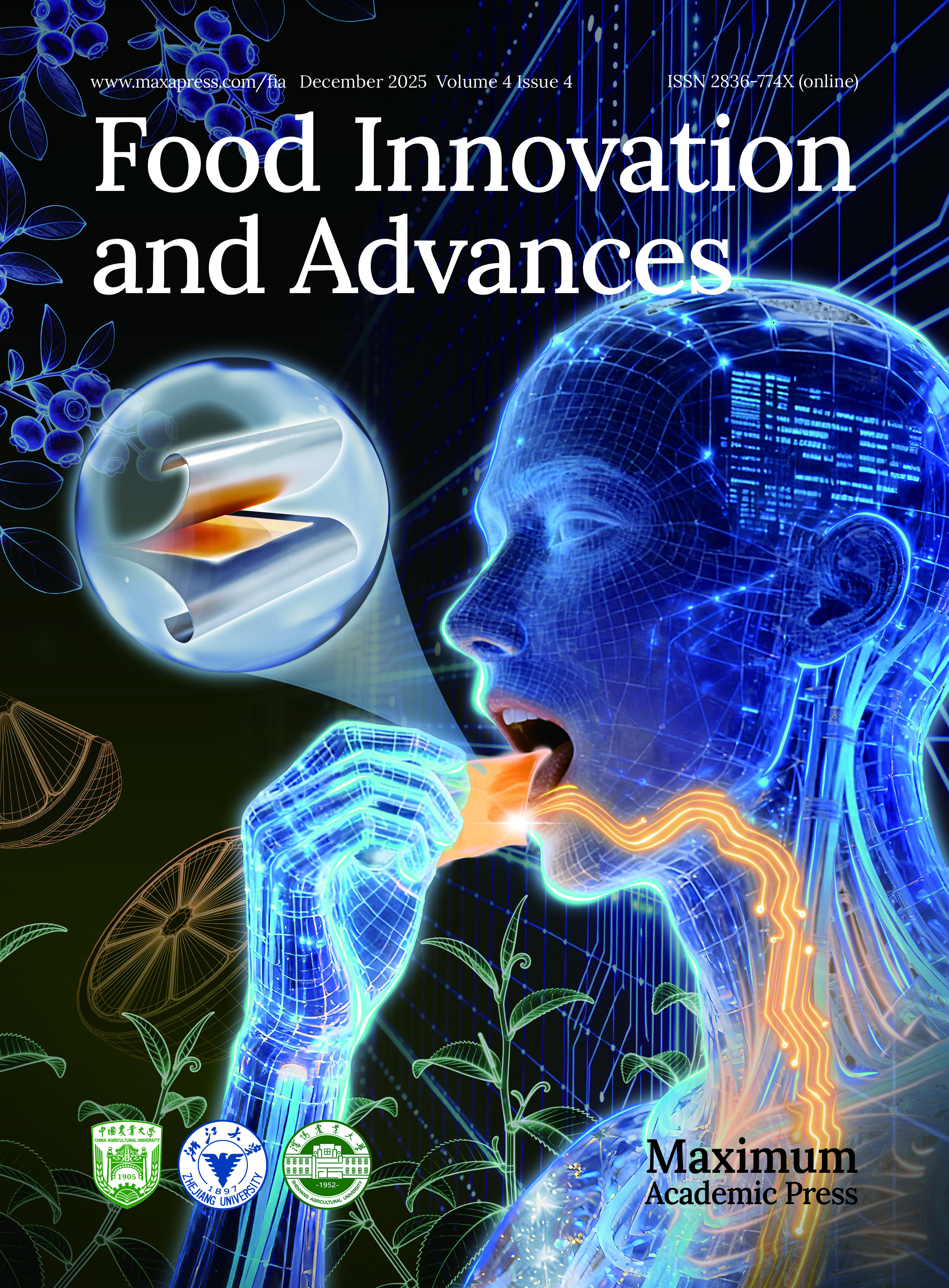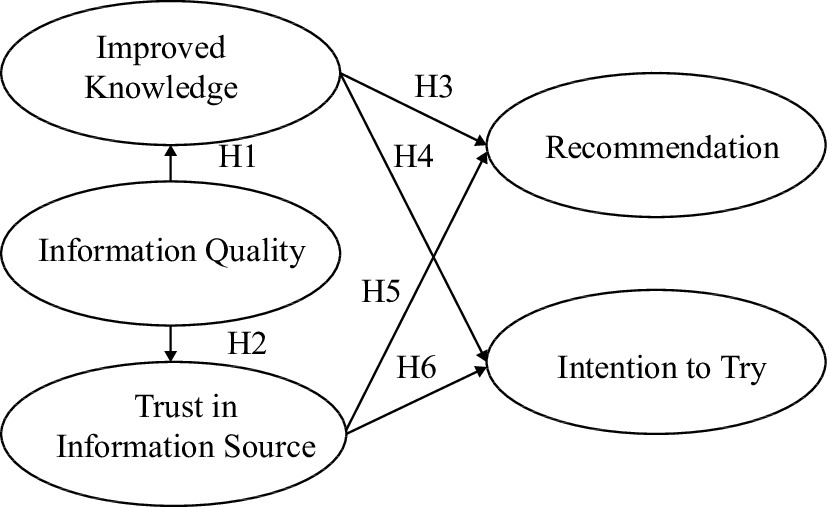-
Nutrition education can be generally defined as a group of learning experiences aimed towards facilitating nutrition-related behaviors or behavior changes that support overall health[1]. This definition suggests that evaluating the effectiveness of nutrition education on the outcome of behavioral change is an appropriate evaluation strategy. Education about the nutritional benefits of food products has the potential to influence consumers' purchasing habits and preferences[2]. According to the US Department of Agriculture's Food and Nutrition Service, nutrition education programs have effectively promoted healthy eating knowledge and behaviors and improved the consumption of nutrient-rich foods and balanced meals among individuals and families in communities.
Pecan consumption in the US ranks third, following almond and walnut consumption. Global growth of the US pecan industry has continued, but domestic pecan consumption has failed to secure consumer support when compared to the other tree nuts. Pecan consumption per capita has remained consistent over previous decades in the US. This stagnation in growth has become a primary concern for the US pecan industry. Prior research has shown that the average pecan purchaser in the US is older, increasingly affluent, and has a higher education status than the general population of the US[2,3]. To combat this trend and reach a younger consumer population (< 35 years old) in the industry, it is essential to market pecan products to this target population through educational strategies.
Additionally, previous research has demonstrated that few college students meet nutritional recommendations[4]. While these years are transitional for individuals, poor nutrition during this phase of life may increase the lifetime risk of numerous chronic diseases[5]. Promoting proper nutrition during this transitional phase may be a key in improving health outcomes and decreasing the risk of chronic diseases. Pecans have long been associated with improved cardiovascular health, decreased obesity and metabolic syndrome, reduced inflammation, and they may improve management of diseases such as hypertension and diabetes[6−13]. Given these health benefits, as well as the lack of nutritional adequacy among college students, education strategies may be increasingly beneficial among this population.
Provided the health benefits that pecans have demonstrated, educational programs to promote pecans among young consumers would be an ideal strategy for increasing pecan consumption in the US and potentially improving the lifetime health of a younger generation. However, how to improve the effectiveness of nutrition education programs for young consumers has not been sufficiently examined. As part of the efforts to design effective nutrition education programs targeting young consumers, this study aims to investigate how the information quality of a nutrition education program affects consumers' nutrition knowledge and trust. In addition, this study also explores the effects of improved nutrition knowledge and trust in information on consumers' willingness to recommend and intention to try pecans. The findings of this study can aid in the development and implementation of increasingly effective educational marketing strategies that have the potential to improve the health of the general public, as well as profitability among pecan farmers.
-
The Knowledge, Attitudes, and Behavior (KAB) Model has been used extensively to evaluate the effectiveness of general health and nutrition education[14]. It suggests that as individuals gain knowledge, attitudes begin to shift, and ultimately, there is a greater likelihood that behavior change will occur[15]. Consistent with the KAB model, when nutrition education teaches why behavior change is positive, it can frame outcome beliefs that can motivate health behavior and behavior change. It has been suggested that the aim of nutrition education is to provide novel information to the audience regarding health and nutrition, under the assumption that this will change personal attitudes that in turn promote health and dietary behavior changes[16]. The KAB model guides the development of this study's conceptual framework and hypotheses. The conceptual model and hypotheses of this study are illustrated in Fig. 1.
Information quality measures the condition of information based on numerous factors, including accuracy, completeness, consistency, reliability, and whether the information is current. According to Strong[17], the quality of information is judged by those who purchase and use information products. The quality of information is considered good when certain standards are met, and the information is able to satisfy the criteria of appreciation as dictated by the user[18]. Credibility of information is influenced the quality of information provided. This prompts consumers to determine if the information they received can be trusted and, therefore, accepted[19]. Tong et al.'s study[20] confirmed that information quality could indirectly increase consumers' knowledge about pecans. Previous studies also showed that information quality could influence users' trust in information[19]. When users perceive that a knowledge-based information resource presents high-quality information, the information and the information provider are more likely to be trusted by users. These users are more likely to adopt said information[19,21]. Seeking to understand further the relationship between information quality, consumers' improved knowledge, and consumers' trust, we propose the following:
H1. Information quality will significantly and positively affect consumers' improved knowledge.
H2. Information quality will significantly and positively affect consumers' trust in information and information sources.
Consumer knowledge describes the knowledge that consumers gain over time from exposure to a product via advertising, salespeople, or from product usage[22]. Prior research has demonstrated that increasing consumers' knowledge of a product will positively influence their intention to purchase and recommend it to others. For example, Kim & Chung's study[23] supported that product knowledge affects a consumers' intent to purchase an item in numerous product categories and consumer segments. Ateke & Didia's study[24] suggested that consumer knowledge correlates positively and significantly with the purchase intention of healthcare products. Perez & de los Salmones[25] demonstrated that consumer knowledge indirectly influenced the willingness to recommend fair-trade products. Further, Duhan et al.[26] show significant relationships between consumers' knowledge and product recommendations.
Studies have found many consumers are unaware of the health benefits of pecans and, in some cases, have found that the public is misinformed about the nutritional aspects of pecans[2,27]. Thus, it has been suggested that improving consumers' knowledge about the nutritional benefits of pecan consumption could increase purchase intent[2,27]. Therefore, we propose the following:
H3. Consumers' improved knowledge will significantly and positively affect consumer willingness to recommend a product.
H4. Consumers' improved knowledge will significantly and positively affect consumer intention to try a product.
Trust is a crucial factor in today's competitive business environment. It has been evaluated as a variable in consumers' purchase intent. Shen et al.[28] demonstrate that trust is a driving force in information adoption, which in turn influences purchase intent. Prior research pointed out trust can also lead to positive word-of-mouth[29]. In recent years, trust has been evaluated extensively in the online environment. Mao et al.[30] demonstrated that consumers' trust positively influenced their behavior intention using the Airbnb platform. Other studies have shown that trust in online stores also positively influenced purchase intent[31,32]. Filieri et al.'s study[33] demonstrated a strong and significant relationship between consumers' trust in consumer-generated media and their subsequent intention to provide positive word-of-mouth recommendations to others in the travel industry. Thus, we propose the following in this study:
H5. Consumers' trust will significantly and positively affect consumer willingness to recommend a product.
H6. Consumers' trust will significantly and positively affect consumer intention to try a product.
-
The study design details were previously published by Tong et al.[20] . Briefly, a research framework was designed to test the proposed hypothesized relationships in a pecan nutrition education program. College students were used as research subjects in this study, as one of the strategies to grow the pecan industry is increasing consumption among a younger (< 35 year old) population. In a pretest, a total of 15 students attending a university in the southeast US participated in a survey through the Qualtrics survey system and provided feedback to assess the clarity of the questions and the reliability of the measures of the variables. In the following primary study, participants took survey online using the Qualtrics survey system. In the survey, participants were evaluated for their prior knowledge regarding nutritional components and health benefits of pecans and then were asked to read a digital brochure regarding nutrition facts about pecans. Following review of the brochure, respondents completed a questionnaire which collected information on standard demographics and the following five variables: information quality, consumers' improved knowledge, trust in information source, willingness to recommend, and intention to try.
Measures
-
After careful review of the relevant literature, a structured questionnaire was designed to be used a survey instrument for this study. The survey questionnaire consisted of items for measuring the five variables included in this study (information quality, improved knowledge, trust in information source, willingness to recommend, and intention to try) and demographic questions. The items for measuring the five variables were adopted predominantly from previous research, with some alterations. Specifically, six items measuring information quality were adopted from Barnes & Vidgen[34], and four items for improved consumer knowledge were developed based on Barnes & Vidgen[34], Li et al.[35], and Smith & Park[36], three items measuring trust in information source were borrowed from Lu et al.[37], and Büttner & Göritz[32], three items for willingness to recommend were adopted from Turhan[38], two items for intention to try were from Gardner[39]. All scales contained a 5-point response format ranging from (1) strongly disagree to (5) strongly agree.
Data analysis
-
Structural equation modeling was used for confirmatory factor analysis and path analyses. The analysis followed the two-step approach recommended by Anderson & Gerbing[40]. The first stage consisted of an analysis of the measurement model to confirm sufficient reliability and validity parameters of the constructs. The second stage consisted of testing the relationships between constructs as the hypotheses proposed. Model fit criteria suggested by Hu & Bentler[41] were used for both the measurement and the structural model: (χ2)/df, the goodness of fit (GFI), adjusted goodness of fit (AGFI), comparative fit index (CFI), root mean square residual (RMR), and root mean square error of approximation (RMSEA)[41]. Acceptable models should have (χ2)/df ≤ 3, AGFI ≥ 0.80, RMR ≤ 0.1, RMSEA ≤ 1.0, and GFI and CFI greater than 0.90.
-
Of the 317 collected questionnaires, 271 responses were considered valid and were used in the final analysis. Due to incomplete responses, 27 subjects were excluded. Given the nature of this study, 19 participants with a nut allergy were also excluded. Most participants were under age 35 (94%), and 243 respondents were women (89%). Regarding participants' prior knowledge of pecans (pecans' nutritional and health benefits), only 74 participants (27.3%) indicated that they are familiar with their nutritional and health benefits.
Reliability and validity of measures
-
Cronbach's alpha coefficients determined the internal consistency of the items, and items with sufficient Cronbach's alphas were maintained for the scales. The results were that all five constructs met the recommended cut-off value of 0.70, and a total of 18 items were maintained for the five constructs in the study.
Using Amos 28 Graphics software (SEM package), a confirmative factor analysis (CFA) for the measurement model with five constructs was performed. The goodness-of-fit statistics demonstrated that all criteria met the suggested values in the measurement model ((χ2)/df = 2.20; GFI = 0.91; AGFI = 0.87; CFI = 0.97; RMR = 0.05, and RMSEA = 0.07).
Table 1 shows the factor loadings, composite reliability, and average variance extracted. Convergent validity criteria was satisfied as all factor loadings were significant and varied from 0.76 to 0.97[42]. Unidimensionality and convergent validity of the constructs were evaluated by the composite reliability measure and the average variance extracted (AVE), respectively. Composite reliability criteria (0.6) were satisfied demonstrating a range from 0.89 to 0.95. The average variance extracted ranged from 0.65 to 0.85, meeting the 0.50 criteria. Good discriminant validity of all scales was confirmed as the scales were evaluated for all possible paired combinations of the constructs and all χ2 differences were significant.
Table 1. Confirmatory factor analysis for the constructs.
Latent variables and observed indicators Standardized factor loading T-value3 Information quality (α = 0.95, CR = 0.95, AVE = 0.751) Information contained in the brochure 1. Provides accurate information. 0.85 –2 2. Provides current and timely information. 0.82 22.53 3. Provides relevant information. 0.86 18.98 4. Provides easy-to-understand information. 0.90 20.04 5. Provides believable information. 0.91 20.54 6. Provides information at the right level of detail. 0.85 18.39 Consumer improved knowledge (α = 0.89, CR = 0.90, AVE = 0.65) 1. After reading the pecan brochure, I feel very knowledgeable about pecan. 0.76 – 2. If a friend asked me about pecan nutritional and health benefits, I could give them advice. 0.80 14.71 3. Pecans are a good source of fiber, healthy fats, protein, and various vitamins and minerals. 0.81 12.56 4. After reading the pecan brochure, I have learned that pecans are healthy nuts that provide various nutritional benefits. 0.86 13.58 Trust in information source (α = 0.95, CR = 0.95, AVE = 0.85) 1. I believe that the organization that developed this brochure is trustworthy. 0.93 – 2. I trust the information contained in the brochure. 0.91 25.36 3. You can expect sound advice from the organization that developed the brochure. 0.93 27.47 Willingness to recommend (α = 0.91, CR = 0.91, AVE = 0.79) 1. After reading the pecan brochure, I would recommend pecan to my family and friends. 0.77 – 2. After reading the pecan brochure, I would share with my family and friends about the pecan's health benefits. 0.97 17.40 3. After reading the pecan brochure, I would share the information from this pecan brochure with others. 0.91 16.78 Intention to try (α = 0.89, CR = 0.89, AVE = 0.81) 1. I will try eating pecan in the next few weeks. 0.88 – 2. I plan to try pecan in the next few weeks. 0.92 13.34 1. α = Cronbach’s alpha, CR = composite reliability, AVE = average variance extracted
2. '–' means the path parameter was set to 1. Therefore, no t-value was given.
3. All loadings are significant at a 0.001 levelStructural model
-
Guided by the proposed hypotheses, development of a structural equation modeling assessed the statistical significance of the proposed relationships demonstrated in Fig. 1. Each of the fit measures found the structural model moderately acceptable ((χ2)/df = 1.88 (p < 0.00); GFI = 0.92; AGFI = 0.88; CFI = 0.98; RMR = 0.04, and RMSEA = 0.06). Aside from the model's general fit for the data, its parameters were tested to determine whether to accept the proposed relationships between the five constructs[43]. Based on the estimations from the structural model, five out of six hypotheses were supported (p < 0.001) (Table 2).
Table 2. Results of hypotheses testing.
Relationships Std. coefficient S.E. T-value P-value Results H1 Information Quality → Improved Knowledge 0.59 0.05 8.90 ≤ 0.001 Supported H2 Information Quality →
Trust in Information Source0.48 0.06 7.90 ≤ 0.001 Supported H3 Improved Knowledge → Willingness to Recommend 0.45 0.09 6.80 ≤ 0.001 Supported H4 Improved Knowledge → Intention to Try 0.38 0.11 4.29 ≤ 0.001 Supported H5 Trust in Information Source → Willingness to Recommend 0.22 0.07 3.52 ≤ 0.001 Supported H6 Trust in Information Source → Intention to Try 0.10 0.08 1.24 > 0.05 Unsupported The results provided strong support for H1 and H2, which indicated that a higher level of perceived information quality could result in a higher level of consumers' knowledge about a product and trust in the information source. The findings also supported H3 and H4, implying that a higher level of knowledge improves consumers' willingness to recommend and intention to try unfamiliar food. The results also showed that higher trust in information sources could increase consumers' willingness to recommend the product to their family and friends (H5). However, we found that trust in information sources did not significantly influence consumers' intention to try a product (H6).
-
With the understanding of the health benefits pecans can offer to consumers, there is a need to develop further insight into the efficacy of educational and marketing strategies geared towards younger consumers in order to continue to grow the industry and potentially improve public health. Insight into how information quality, improved knowledge, and trust in an information source influence a consumers' willingness to recommend pecans and their intent to try pecans add valuable information to the current body of literature. This information can be used to influence and implement educational and marketing strategies targeted to increase pecan consumption in a younger population. Our findings indicate that marketing strategies focused on improving information quality will likely have the most significant impact on the efficacy of these strategies. Information quality can positively influence improved knowledge, trust in information sources, willingness to recommend a product, and intention to try pecan products.
Information quality
-
Our findings support that information quality is an influential variable directly influencing consumer knowledge and their trust in information sources. Further, this study confirms that information quality could indirectly influence consumers' willingness to recommend or try a product. Therefore, focusing on high-quality marketing and educational materials could be a valuable strategy for increasing popularity among young consumers in the pecan industry. Pecan product marketers should ensure that the information provided to consumers is reliable and relevant and transmitted via a personalized relationship to enhance consumers' trust and knowledge of pecan products[18]. The findings of prior studies suggested that consumers' evaluation of the quality of the information varies depending on sources, and more objective sources (e.g., independent sources outside an entity) provide higher quality information[44,45]. We, therefore, recommend that the information given to the consumer about the health benefits of pecans should be from an authoritative external organization such as the US Food and Drug Administration (FDA), which guarantees its validity and reliability.
Previous research has also demonstrated that information quality is positively associated with media-richness[20]. An example of rich media is video inclusion in educational materials. With this understanding, the pecan industry may benefit from using platforms that include videos in their educational materials. One such platform that specifically targets a younger demographic and has demonstrated success in nutritional education is social media[46,47]. Providing media rich educational videos on social media is one strategy we recommend in an effort to increase pecan consumption among younger consumers.
Improved knowledge
-
Our results show that improved consumer knowledge strongly influences their willingness to recommend or try a product. As has been suggested from previous studies, consumers know what products they want, and are aware of the benefits related to using said products. Thus, purchase decisions follow based on their confidence in their knowledge about these products[24]. Therefore, improving consumer knowledge should be an essential part of marketing campaigns to increase consumption and sales of pecan products. It has been previously noted that the general public's knowledge regarding the health benefits of pecans may be misinformed[27]. Increased pecan consumption may be achieved by improving consumer knowledge regarding the associated health benefits that accompany pecan consumption[20]. Thus, improving consumer knowledge regarding pecans and the associated health benefits should be a focus of educational materials.
Understanding that information quality positively influences improved consumer knowledge, the same strategies proposed above may also drive pecan consumption in a younger demographic. High quality, media rich educational materials, provided on a platform that targets a younger demographic (social media) may also have a positive influence on consumers improved knowledge.
Trust in information source
-
This study confirms that trust in an information source positively influences a consumer's willingness to recommend pecan products. Willingness to recommend pecans to a friend or family member has the potential to drive sales and growth in the pecan industry. Government agencies, educational programs, or professional organizations are considered the trusted sources of nutrition and health information. Thus, pecan product marketers should use information from these dependable sources and cite the source from which the content came. As previously suggested, information from external authoritative sources, such as the US FDA, may also improve information quality. Incorporating information from these trusted sources into high quality educational materials targeting younger demographics may be a key component in increasing pecan consumption in these populations.
As mentioned previously, consumers' trust in information sources has been shown to influence whether consumers adopt the information; information adoption, in turn, affects purchase intent[28]. However, this study does not support a significant relationship between consumers' trust in an information source and their intention to try pecan products. Previous research has shown that habit may act as a moderator between trust and purchase intention[48]. Thus, a possible explanation of this result may be that when consumers make changes to their eating habits (such as trying new food), it will take not only trusted knowledge but also practice and time before they become comfortable with adopting a better eating habit.
-
The sample used in this study was a convenience sample consisting of only college students from a university in the southeast US. In order to generalize the findings from this study, future research should be conducted using a broader sample of young consumers in diverse geographic settings, with varying educational backgrounds. Considering Asia has become the largest export market for American pecans, it would also be interesting for researchers to conduct cross-cultural research in this area targeting young consumers in some Asian countries (e.g., China). Prior research suggests that nut consumers are generally more health-conscious than non-nut consumers. Therefore, future studies on this topic could also examine whether consumer-related factors (varying degrees of health consciousness and different healthy lifestyles) could affect consumers' willingness to try pecan products. In terms of theory building, further work could be conducted to identify additional factors that may contribute to the efficacy of nutrition education programs.
-
Developing a further understanding of how the information quality of a nutrition education program affects consumers' nutrition knowledge, trust, and intention to try and recommend pecans is a key component of increasing pecan consumption among young populations. Increasing consumers' knowledge surrounding the health benefits of pecans may be best achieved through high quality education materials from a reputable source. Social media should be considered in these strategies to target a younger demographic. Future research conducted in varying populations and evaluating prior health-related knowledge variables would add invaluable insight to the current body of literature. Increasing the efficacy of nutrition education programs for pecans has the potential to not only stimulate growth in the industry, but also improve public health by promoting this heart-healthy food.
This project is funded by the USDA Agricultural Marketing Service, Specialty Crop Block Grant Program, as USDA-AMS award # AM200100XXXXG028.
-
The authors declare that they have no conflict of interest.
- Copyright: © 2023 by the author(s). Published by Maximum Academic Press on behalf of China Agricultural University, Zhejiang University and Shenyang Agricultural University. This article is an open access article distributed under Creative Commons Attribution License (CC BY 4.0), visit https://creativecommons.org/licenses/by/4.0/.
-
About this article
Cite this article
Szacilo A, Tong X, Tan L, Chen H, Kong L. 2023. The role of information quality in designing effective nutrition education programs for pecans. Food Innovation and Advances 2(2):156−162 doi: 10.48130/FIA-2023-0018
The role of information quality in designing effective nutrition education programs for pecans
- Received: 02 February 2023
- Accepted: 21 April 2023
- Published online: 20 June 2023
Abstract: Pecans have many health benefits and are known for being part of a heart-healthy diet. Nutrition education is a key component in increasing pecan consumption among young consumers. In an effort to improve the efficacy of nutrition education targeting a younger demographic, this study aims to investigate how the information quality of a nutrition education program affects consumers' nutrition knowledge, trust, and intentions to recommend and try pecans. A total of 271 usable questionnaires were collected from college students at a southeast university. Our findings indicate that information quality could directly influence consumer knowledge and trust in an information source and indirectly influences consumers' willingness to recommend or try a product. This study also showed that improved consumer knowledge and trust in an information source could strongly affect their willingness to recommend pecan products. The findings of this study can be used to increase the efficacy of educational marketing strategies in the pecan industry and drive an increase in consumption among younger populations.
-
Key words:
- Pecan /
- Nutrition education /
- Information quality /
- Willingness to recommend /
- Intent to try













